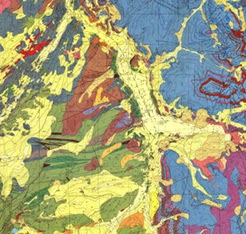Dear YES Members and
Colleagues,
It is our great honor to
invite submissions to the first YES Book Academic edition for special issue on
Earth Science.
This special edition of the
book is meant for the Senior secondary school and graduate college students. It
focuses on the fundamentals of Earth Science, scope of the Earth science
studies. A major section of educated society will also be the target readers of
this special edition.
YES book will be published and housed by the University of Tucuman,
Argentina, under the INSUGEO Management. INSUGEO, Institute of Geological
Correlation, is an academinc unit of University of Tucuman and the CONICET, the
research council of Argentina. The series of the book will be indexed in EBSCO, Ulrich
International Periodical Directory, Thomson Reuters ISI Master Journal List,
Zoological Record, Gale Cencage Learning y Georef, Directory of Open Access
Journals DOAJ and Latindex.
Submission requirements:
We encourage all YES members to submit the proposals. Interested authors need
to send the chapter proposal (not more than 500 words) via email to networkyes.secretary[at]gmail.com with
subject: YES Book Proposal. A CV/Resume of the interested author is
required to assess the experience in the same field.
A tentative list of topics include:
1.
About Earth Science
2.
What is Earth as a system? Tectonic
paradigm; composition of inner Earth; rock types; Atmosphere; Ocean studies;
Water cycle; Environment
3.
Earth’s origin and composition
4.
Different theories for the
existence-including scientific, non-scientific, and religious belief.
5.
Different methods to study Earth or
different fields of Earth Science (ES)
6.
What Earth Scientists do?
7.
History of Earth. How old is Earth? How
Geologists, Palaeontologists, Geophysicists and geochemists determine the age
of Earth. Periods – Systems. Stratigraphical chart.
8.
Palaeontological record and Life History.
9.
Earth and economy. Geographic approach.
Mining. Hydrocarbons. Renewable and non-renewable resources, Sustainable
development.
10. Natural and geological hazards, Environments
and Geological risks; Risk Management and Prevention.
11. Earth sciences at XXI century, New
approaches; Importance and Frontier areas of research.
12. Earth: Quo vadis. Solar system exploration.
New worlds?
13. Case histories in different fields.
14. Use of Information Communication Technology
[ICT] in Earth Science
We are open to suggestions towards the addition or modification of
tentative chapters. Kindly send your concerns to networkyes.secretary[at]gmail.com. Further
guidelines will be communicated after receiving the proposals.
All the best,
Dr. Carlos A. Cónsole Gonella, PhD
INSUGEO
(Instituto Superior de Correlación Geológica)
CONICET - Universidad Nacional de Tucumán
Miguel Lillo 205
(4000)
San Miguel de
Tucumán, Argentina.
Tel. + 54381 4236395 (120)
|
Dr. Tanvi ARORA, PhD
Scientist
CSIR-National Geophysical
Research Institute, Uppal Road,
Hyderabad-500
007, India
T: +91 40 2701
2624 / 2701 2000 (Ext. 2624)
|


